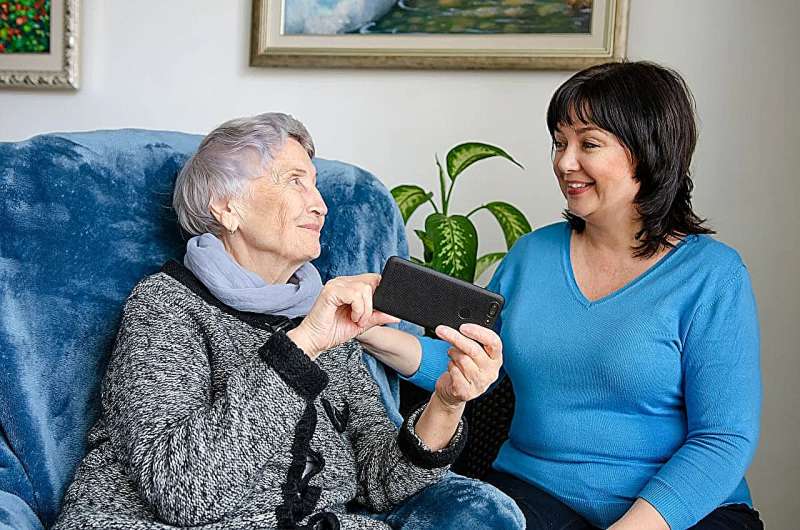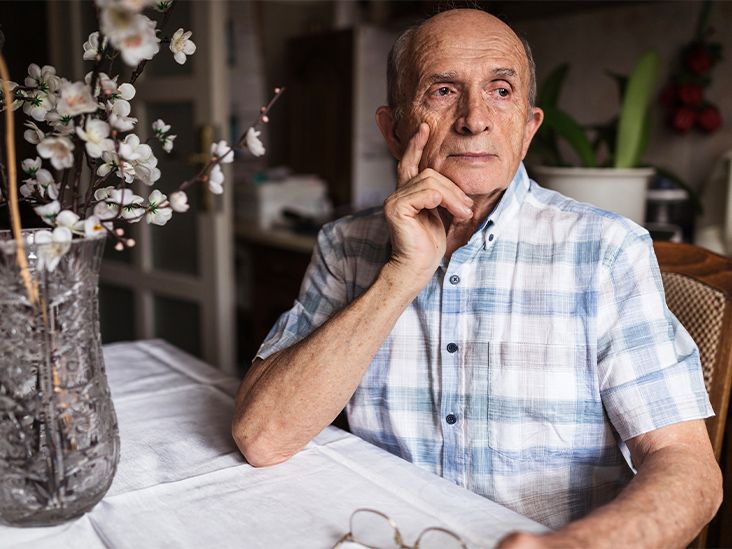The Emotional and Psychological Aspects of Hospice Care
Hospice care often focuses extensively on the physical needs of patients, providing pain management, symptom control, and personal care. However, the emotional and psychological aspects of end-of-life care are equally important for the overall well-being of patients and families.
Grief and Loss Begins at Hospice Admission
The admission process to hospice in and of itself can be an emotionally difficult transition. Individuals are forced to face their mortality and the impending loss of their independence, role in family life, and future plans. Grief, fear, anxiety, sadness, anger, and denial are all normal reactions that hospice staff should be attuned to and provide support for.
Psychological Effects of Terminal Illness
In addition to grief related to hospice admission, terminally ill patients often experience high rates of depression, anxiety, existential distress, and even suicidal thoughts related to their illness. However, these issues often go unaddressed by hospice staff focused on physical care. Proactive psychological care can make a profound difference for patient quality of life.
Importance of Life Review and Reminiscence
Life review therapy and reminiscence provide enormous psychological benefits at end of life. The process of reflecting back on memories, accomplishments, andpersonal history helps bring meaning, value, and acceptance during difficult transitions. However, hospices rarely facilitate formal life review processes for patients before death.
Risk of Unresolved Emotional and Psychological Issues
When psychological, emotional, and existential distress goes unaddressed at end of life, patients are at higher risk for increased physical suffering, desire for hastened death, and poor quality of life. Hospice care too often relies solely on psychiatric medications without providing counseling, therapy, or support groups.
Lack of Bereavement Support for Family Members
While hospices typically provide some grief support groups after a loved one's death, families often report these services are inadequate. Bereavement counseling, therapy, and support are needed both before and after the death of the patient to help families cope and begin emotional processing.
Difficult End-of-Life Care Conversations
Quality hospice care requires extensive, compassionate communication with both patients and family members regarding difficult end-of-life topics. However, the realities of dying are complex, and hospices often fail to have open discussions.
Prognostic Uncertainty Challenges
Even physicians struggle to accurately predict prognosis for terminally ill patients. Poor prognostication leads to difficulty having frank conversations about disease progression and expected outcomes. More transparency regarding the uncertainty of predicting "time left" is needed.
Lack of Informed Consent and Choice
Truly informed consent requires understanding one's condition, care options, and likely outcomes. However, hospice staff may avoid offering choices regarding aspects of care like certain treatments, home vs inpatient admission, etc. Patients have a right to information and choices.
Withholding Discussions About Hastened Death
Despite some patients inquiring about hastening their death, hospice staff often shut down conversations about withdrawal of care, voluntarily stopping eating and drinking, sedation for intractable suffering, and aid in dying. Ethical discussions are needed.
Avoiding Conversations About Post-Death Realities
To avoid causing further distress, hospice staff frequently avoid realistic conversations about what happens to the body after death, burial options, handling of patient belongings, etc. However, clarity reduces anxiety for patients and families.
Lack of Cultural Competence
Good end-of-life communication requires cultural awareness regarding traditions, values, beliefs, and rituals surrounding death. Hospice staff do not consistently provide information and support aligned with cultural needs.
Caregiver and Family Support Failures
Hospice rightfully focuses care on the dying patient. However, families providing informal caregiving are profoundly affected and must also be supported. Many hospices fall short in assisting caregivers.
Caregiver Burnout and Distress
Watching a loved one die is incredibly stressful and often leads to burnout, exhaustion, and crisis in family caregivers. However, hospices rarely provide counseling, respite, support groups, or other interventions to support informal caregivers.
Lack of Home Care and Respite
Despite the recommendations included in hospice care plans, inadequate home care, infrequent nursing visits, and lack of respite often leaves family caregivers overwhelmed and alone. Advocacy is needed to get promised services.
Insufficient Inpatient Respite
When family caregivers reach their limit, short-term inpatient hospice respite is supposed to provide a break. But often there are too few respite beds available, inadequate length of stay, and barriers to access.
Financial and Work Burdens
In addition to emotional strains, family caregivers often suffer lost wages, financial costs, and career consequences due to hospice caregiving demands. But hospice social workers rarely help mitigate the economic burdens.
Lack of Bereavement Follow Up
After the patient's death, overwhelmed and distressed caregivers are often left to grieve without adequate follow up or support from the hospice team. Continued bereavement contact could help families adjust.
Insufficient Hospice Medical Care
While hospices aim to provide comprehensive comfort care at end of life, many families report inadequacies in pain and symptom management from hospice medical staff.
Inadequate Pain Assessments
Good pain control starts with thorough evaluation using established pain scales and assessments. However, hospice nurses sometimes fail to adequately assess and document pain, leading to under-treatment.
Challenges Managing Complex Pain
For cancer patients especially, pain can be multifaceted involving bone pain, neuropathy, wounds, spasms, and more. Hospices do not always provide optimal, multimodal pain regimens in these complex cases.
Insufficient Non-Pain Symptom Control
Besides pain, symptoms like nausea, vomiting, agitation, seizures, and delirium severely impact quality of life yet are often poorly controlled by hospice staff using outdated approaches.
Deficiencies Providing Palliative Care
Palliative care goes beyond hospice to improve quality of life for those with serious illness through pain/symptom management, counseling, and aligning care with personal values. Too few hospice programs offer this enhanced support.
Limited Access to Specialty Palliative Care
For patients with the most complex needs, specialty palliative care teams provide an extra layer of support and expertise. But availability to these services is sparse, and hospices underutilize these specialists.
Quality of Life: Not Just Quantity of Life
While hospice care focuses on comfort for the dying, more emphasis needs to be placed on improving quality of life through joy, meaning, closure, and personal growth during end of life.
Personhood: Continuing One's Identity
As illness progresses, patients often feel a loss of personhood and identity. However, encouraging self-expression and memories reinforces a sense of continued dignity and value.
Supporting Hope and Meaning
Counter to some assumptions about hospice being "giving up hope," encouraging hope is vital for quality living until death. Hope for closure, meaning, spiritual growth, time with loved ones, or a peaceful death.
Facilitating Life Completion
At end of life, looking back over one's joys, regrets, and lifetime of memories helps bring acceptance and wholeness. However, few hospices actually provide guided life review for patients.
Preserving Dignity and Privacy
Personal routines, privacy, dignity, independence, and autonomy should be supported for as long as possible. However, hospice care often forces changes and loss of control.
Closure and Legacy
Creating closure in relationships, sharing life lessons, passing on possessions, and leaving a personal legacy are central human needs at end of life. Hospice programs need to better facilitate completion.
Conclusion
While quality hospice care can greatly enhance the dying process for terminally ill patients and their families, there are still many aspects that hospice providers fail to acknowledge and openly discuss with their patients. Addressing psychological, emotional, social, spiritual needs along with having compassionate communication, supporting caregivers, and improving medical care gives patients the best chance at having a good death when medicine can no longer cure. More education, accountability and transparency are still needed in the hospice industry to align services with patients' end-of-life wishes and goals.
FAQs
How do I know if it's time for hospice care?
Your doctor may recommend hospice if you have a terminal illness and are expected to live 6 months or less. Declining ability to do daily activities, increasing pain/symptoms, hospitalizations, and weight loss often indicates hospice need.
What kind of services does hospice provide?
Hospice provides medical care, pain management, equipment, supplies, medication, home health aides, chaplain services, counseling, and bereavement support. Care is covered 100% by Medicare/Medicaid.
Where does hospice care take place?
Most hospice care takes place at home so patients can remain comfortable and familiar. Inpatient hospice facilities are available for short stays when symptoms become too difficult to manage at home.
What should I expect at end of life on hospice?
Common end-of-life experiences include increased sleeping, decreased appetite, muddled thinking, withdrawal from others, changes in breathing patterns, body temperature fluctuations, and increased pain.
How can I support my loved one on hospice?
You can provide comfort through presence, touch, listening, reminiscing, reading aloud, playing favorite music, limiting visitors, and avoiding difficult topics. Take care of yourself too.
Disclaimer: This article is for informational purposes only and does not constitute medical advice. Always consult with a healthcare professional before starting any new treatment regimen.
Related Coverage
Embrace the power of superfoods and elevate your conscious lifestyle. Discover 15 nutrient-dense powerhouses that offer a wealth of benefits for your body, mind, and spirit....
Find the best Alaska Medicare plans for 2025. Compare Part D, Medigap, and Original Medicare options tailored to your needs....
Find the best Medicare in Tennessee options for you. Compare plans, enrollment periods, and coverage to make informed decisions....
Get clear info on Medicare in Oregon, including coverage options, Medicare Advantage, Part D, and how it works with OHP....
Family caregivers need real support. Find resources, respite care, and ways to get paid while caring for loved ones....
Medicare for snowbirds can be simple with the right plan. Learn how Original Medicare, Medigap, and Advantage work across states for seamless care....
Knowing the red flags like isolation, mood swings, controlling behavior and fear in toxic relationships can empower you to regain your self-worth and walk away....
Learn how to change Medigap policy without medical underwriting, when guaranteed issue rights apply, and steps to switch safely....
Learn how Medicare Advantage enrollment works during your Initial Coverage Election Period (ICEP) and make the best healthcare choice....
Compare Medicare Plan G vs N to get lower premiums, fewer copays, and protection from excess charges, you can pick the best fit....









